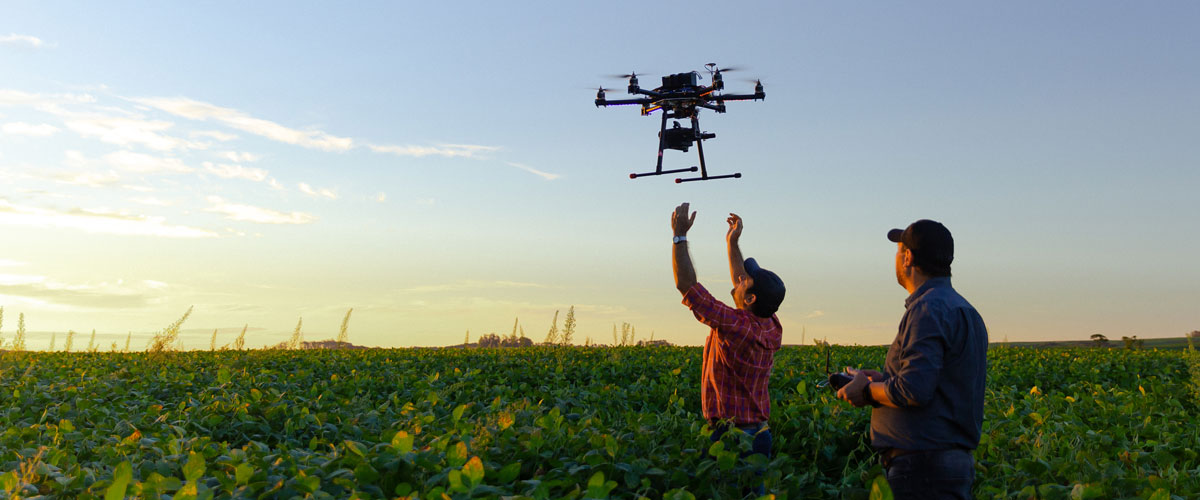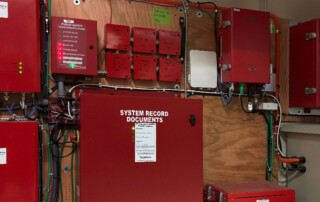In the era of digital transformation, data has become the driving force behind successful farming operations. By leveraging private data networks, farmers can unlock a world of possibilities, transforming the way they manage their crops, optimize resources, and increase overall productivity.
Private data networks are purpose-built, high-performance wireless networks with dedicated bandwidth and wireless infrastructure engineered to support the unique operational and connectivity needs created by modern AgTech. A private network ensures that farmers control their wireless environment, unlike in traditional public networks operated by large carriers, allowing them the flexibility to make operational and management decisions for dedicated AgTech devices and network parameters.
The benefits of owning a private network are many, including increased security, lower latency, higher capacity, Quality of Service (QoS) controls over how data is prioritized by the network, seamless handoffs between access points, and an overall greater level of reliability.
Private networks are available in three distinct types, defined by the choice of spectrum leveraged to deliver the network:
- Licensed spectrum – This segment of spectrum is primarily owned by mobile network carriers that can, in turn, license the use of portions of owned-spectrum in a given geographical area to any enterprise or organization.
- Shared spectrum – This option allows multiple entities to share share the same frequency bands for private communication needs. Shared spectrum requires the utilization of spectrum management and coordination procedures to ensure interference free coexistence. CBRS (Citizen’s Broadband Radio Service) is the best known model of shared spectrum, occupying the 3.55-3.70 GHz band.
- Unlicensed spectrum – Publicly-available frequencies that do not require permission from the Federal Communications Commission (FCC) to utilize. WiFi, Bluetooth, and MulteFire all exist in the unlicensed spectrum.
Spectrum is the critical “unseen” requirement for a private network solution. The physical components of the network require standard telecommunications infrastructure, including:
- Base stations to transmit and receive radio signals that enable data exchange between user devices and the core.
- Core network to manage and process data and handle various network functions like authentication and mobility management.
- Small cells to enhance network coverage and capacity in defined areas with higher user density.
- Antennas to transmit and receive radio signals between base stations and user devices.
- User Equipment (UE) that connects to the network to access data and services, including devices like smart phones, tablets, laptops, and IoT (Internet of Things) sensors.
- Fiber optic cables, switches, routers, and a power supply are also essential components for a private data network.
Additionally, some large-scale private network deployments for agriculture require communication towers to increase the coverage area. Portable tower assets like Pierson Wireless’ Network on Wheels provide flexible alternatives to a permanent tower structure, allowing the opportunity to stand up a network quicker, and with additional flexibility.
Now that you have an understanding of what a private data network is, let’s take a look at a few reasons why private data networks are becoming a game-changer in the agricultural industry.
Real-time Decision-Making
Private networks enable farmers to collect and analyze data from various sources, such as sensors, drones, and satellite imagery, in real time. This wealth of information empowers agriculture professionals to make data-driven decisions promptly. By monitoring crop health, moisture levels, and weather patterns, farms can optimize irrigation, nutrient application, and pest control strategies, leading to increased yields and resource efficiency.
Collaboration and Knowledge Sharing
Private networks foster collaboration among farmers, agronomists, and researchers. By securely sharing data within a trusted network, farmers can tap into collective intelligence and benefit from valuable insights. Peer-to-peer knowledge exchange and collaborative problem-solving can lead to breakthroughs in crop management techniques, disease prevention, and sustainable farming practices.
Machine Learning and Artificial Intelligence Integration
The integration of private networks with machine learning and artificial intelligence (AI) technologies is revolutionizing agriculture. These advanced systems can analyze significant amounts of data to detect patterns, predict disease outbreaks, optimize seed selection, and even automate tasks like precision spraying or robotic harvesting. By harnessing the power of AI, the agriculture industry can optimize farming operations and achieve higher levels of efficiency and productivity.
Sustainable Farming Practices
Deploying a private network empowers farmers to embrace sustainable practices like never before. By leveraging data on soil health, weather conditions, and crop rotation, they can implement precision farming techniques, minimize chemical inputs, reduce water usage, and promote biodiversity. Private data networks provide the insights necessary to make environmentally conscious decisions and contribute to a more sustainable future.
Enhanced Data Privacy and Security
With private networks, farms maintain control over valuable agricultural data. By utilizing private networks, farming professionals can ensure that sensitive information, such as crop yields, soil health metrics, and climate data, remains protected from unauthorized access. Safeguarding data is crucial for maintaining a competitive edge.
Agriculture is arguably the most important industry in the world, sustaining life by producing the food we need to survive, and providing livelihoods through millions of jobs. It also is a major economic driver in the United States, contributing nearly $7 trillion to the domestic economy. Technological advances like private data networks are assisting farmers by optimizing operations and yield, ensuring a vibrant future for us all.
Pierson Wireless is a telecommunications industry leader in the design, installation, and ongoing monitoring of private data network solutions across a wide range of industries and use cases. Founded and headquartered in Nebraska, we understand the critical importance of agriculture and appreciate how telecommunications technologies can positively impact the industry. To learn more about creating a more productive, sustainable, and profitable agricultural enterprise, contact Pierson Wireless’ team of experts today.
























Leave A Comment